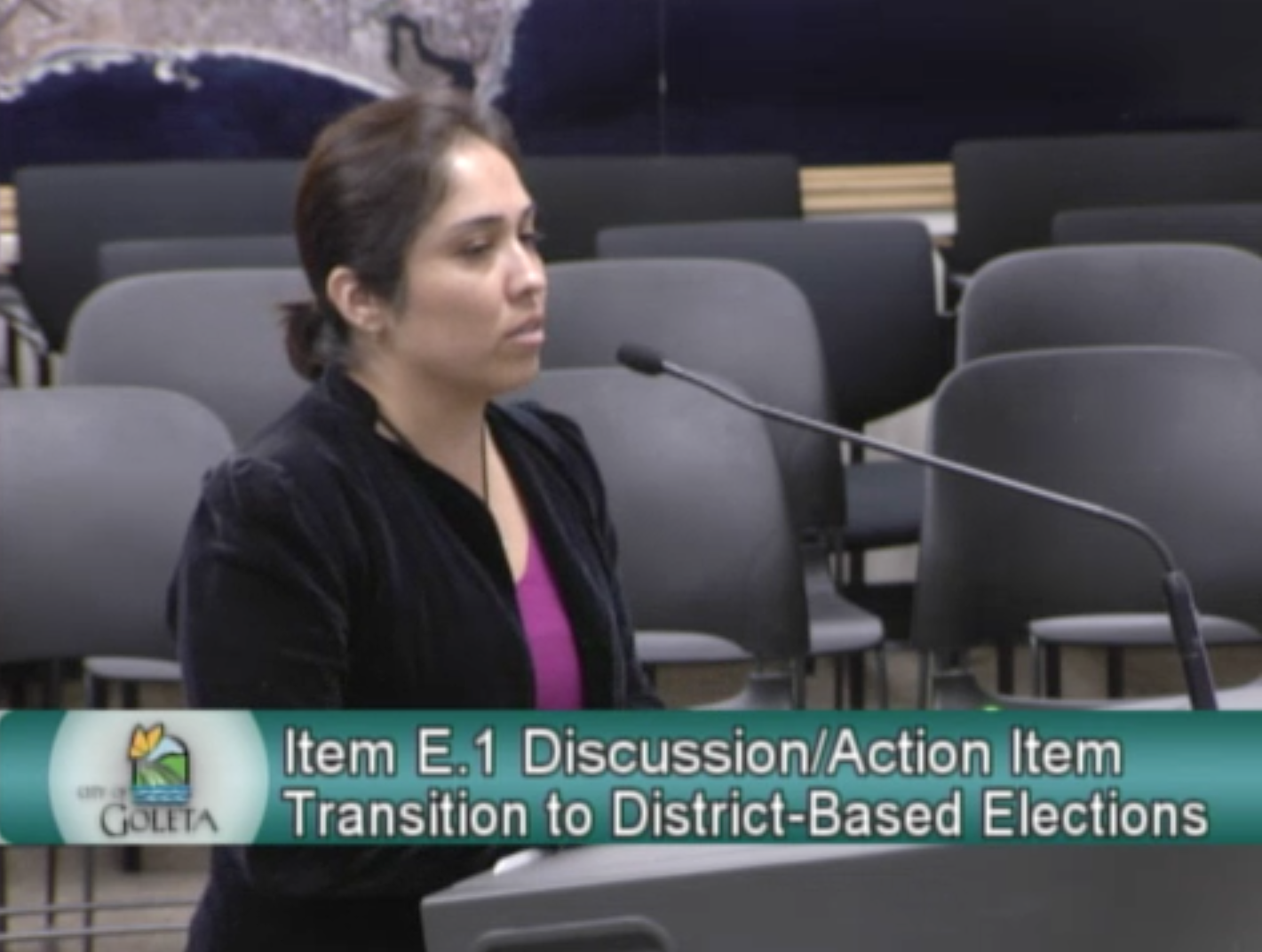Goleta District Election Committee Postpones Demand
Gives City Until After 2020 Census to Draw Boundaries and Hold a Vote

A “twist in the plot” has occurred in Goleta’s drive toward district elections, Acting City Attorney Winnie Cai announced at Tuesday night’s City Council meeting. Following the March 7 listening session at which the public weighed in on the proposal, the newly named Goleta District Election Committee wrote to the council, stating they were willing to hold off until after the 2020 Census to begin drawing lines for a district election to be held in November 2022.
The committee asked for a special commission to be formed to provide a voice for those who might not be comfortable giving their opinion or were too young to vote or otherwise felt they were not being heard, Lindsay Rojas, a plaintiff in the threatened litigation, told councilmembers on Tuesday. The commission, the city attorney added, would help “maximize public involvement” by bridging the gap presented by lives too busy to engage with city government, by language barriers, or by a lack of understanding of how governance worked.
Most of the councilmembers embraced the idea of a greater public reach, with Mayor Paula Perotte stating the idea was “exciting.” Councilmember Roger Aceves wryly pointed out that seven people sat in the audience by the end of the meeting, saying it was not representative. He argued that he saw no problem with getting people to run, countering statements that two recent elections had almost no one but incumbents running. “Neighborhoods will respond; they will find someone to represent them,” he said.
District boundaries would use up-to-date household information from the new Census, said Cai. By law, City Council would have the last word on the boundaries, Cai added, but the committee wanted one of its members to sit on the commission to determine the borders.
Rojas and Hector Mendez are members of the Goleta District Elections Committee, which spokesperson Jacqueline Inda told The Independent has about 15 members, of whom seven are “most active.” By 2022, Inda said, the committee and the special commission will have grown in size and learned more about governance through the boundary-drawing exercise. From that, she stated, future leaders would probably emerge. An attorney associated with the group is Micah Fargey, said City of Goleta spokesperson Valerie Kushnerov. Fargey is based in Portland, OR, and a member of the California bar, purportedly with an office in Santa Barbara, but he has not returned calls inquiring about the preparation of the draft pleadings or the $30,000 bounty that accompanies such threatened litigation.
Inda observed that the documents sent to the council in February were only in draft form and were not yet a lawsuit, which is why they bear no attorney name, signature, or bar association number. She stated that a lot of work went into collecting the demographic and other information by “five or six people, including several attorneys and researchers”; the payment would be well-earned, she said. Inda did not reply to repeated requests for the names of the members of the “California Voting Rights Project,” a moniker that appears on the draft pleadings.
Acting on information received through the previous public session, Cai told the council, the committee wanted to explore a city charter or a vote for greater council compensation, which is currently about $7,000 a year. Other ideas were to consider holding council meetings after 5 p.m. and to elect a mayor for four years instead of two.
During Tuesday night’s comment session, Tony Vallejo stepped up to the podium, a former councilmember who was warmly greeted by Mayor Paula Perotte. He said he’d come because his name was cited in the Notice of Violation papers: “I think that district elections now or in 2022 is a horrible idea,” Vallejo said. He explained that he lived, shopped, and worked in three different areas of town, and that Goleta was just too small to be split into districts. “The issue we’re talking about here is outreach.” He expressed his sympathy to the council, saying, “I know the cities never win in these fights.” He then excused himself: “I’ll be doing taxes if you need me.” Vallejo is a CPA.
The councilmembers as a whole expressed appreciation for the reprieve. The newest councilmembers, Stuart Kasdin and Kyle Richards, had concerns that enough people would come forward to run in the four districts, with Richards stating he had lowered his hours as an analyst for UCSB’s Academic Senate to 75 percent because his council duties were time-consuming. Kasdin observed that some other electoral options, like cumulative voting, could achieve the same outcome as district elections.
Aceves, who said, he’d never missed a council meeting in his 11 years, even when working full-time as a police officer, said that beyond ethnicity and language, a candidate’s reputation in the neighborhood will determine the vote. As for divisiveness among districts, he believed budgets would be made with city-wide issues in mind, not pork.
Cai said city staff would return in May with a new resolution on forming election districts.



